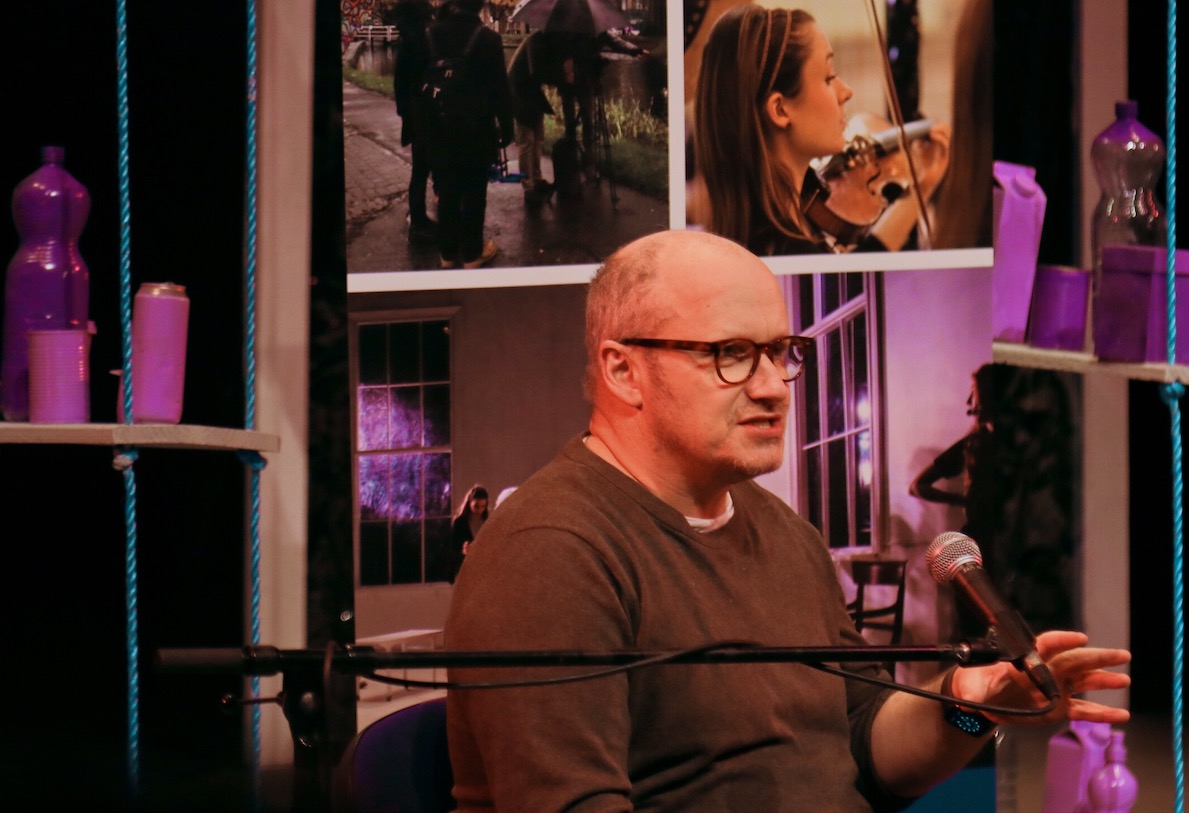
Not many conversations manage to encompass as wide a range of issues within one lone hour as the one that took place yesterday afternoon in Trinity’s Samuel Beckett theatre with Lenny Abrahamson, arguably Ireland’s pre-eminent film director and screenwriter of the current moment. Entitled “Why Make Movies”, the discussion touched on everything from gloomy prognoses about the future health of arthouse cinema in this homogenised era of Netflix dross, to the addictive power of social media and the dizzying effect it can have on the creative mind.
However, it would be unfair to characterise the talk as wholly mired in pessimism, as Abrahamson delivered his views about the state of contemporary cinema with savage wit and a sincere hopefulness that the apparent disappearance of popular cinema that is also both challenging and provocative is only temporary.
Abrahamson began his expert overview of the predicament film finds itself in nowadays by drawing the audience’s attention to the inherent conflict that exists between real art and the easily marketable, itemised products that the modern entertainment industry craves. Remarking on this unwelcome tension, Abrahamson wondered “What’s so special about the cinema? Is it still possible to make good, quality films for a mass audience and make it commercially viable? I do now worry about the likelihood of seeing really creative, exciting films in the cinema.” Judging from this quote, it’s clear that the commodification of the creative process must leave a boundary-pusher such as Abrahamson somewhat frustrated and dispirited about cinema’s present situation.
However, we can take heart from the fact that the snapping fingers of film financiers and the commercial imperatives they often saddle artists with have, by and large, not one bit compromised the integrity of Abrahamson’s own work. Throughout the talk, Abrahamson’s high regard for truth-telling and pursuing one’s own area of curiosity right to the end, regardless of external influence, became unmistakable. On this point, Abrahamson opened up about his own ways of negotiating the creative process: “Filmmaking ought to be a journey to the furthest corners of the things that interest you and that has to be a very instinctual process. But trying to continue to do this without becoming aligned with the dominant pressures of the industry is very hard.” Despite this difficulty, Abrahamson has always succeeded in resisting the temptation of conceding to prevailing beliefs about how mainstream cinema can, or should be, conceived. His atypical fascination with characters that exist on the frontiers, on the margins, with the dispossessed and the strange has never waned. This very fact suggests there is a steely, inner artistic strength to Abrahamson constantly reinforcing his conviction that exploring the lesser-known worlds of human experience and emotion, as in The Garage (2007), is worthwhile for its own sake, meaning ambitions of status elevation within the industry always comes way down his list of priorities, if at all.
In other words, Abrahamson has preserved his perspective on what film should be aiming to achieve at a time when many of his peers are being blown submissively onto the middle of the road by the winds of change that have swept away so much of value in cinema.
Abrahamson’s art has always endeavoured to put society’s outsiders centre stage. Maybe the only difference between Abrahamson, as a subversive within the world of cinema, and the characters portrayed in his films is that he is an outsider who managed somehow to find a way in.






